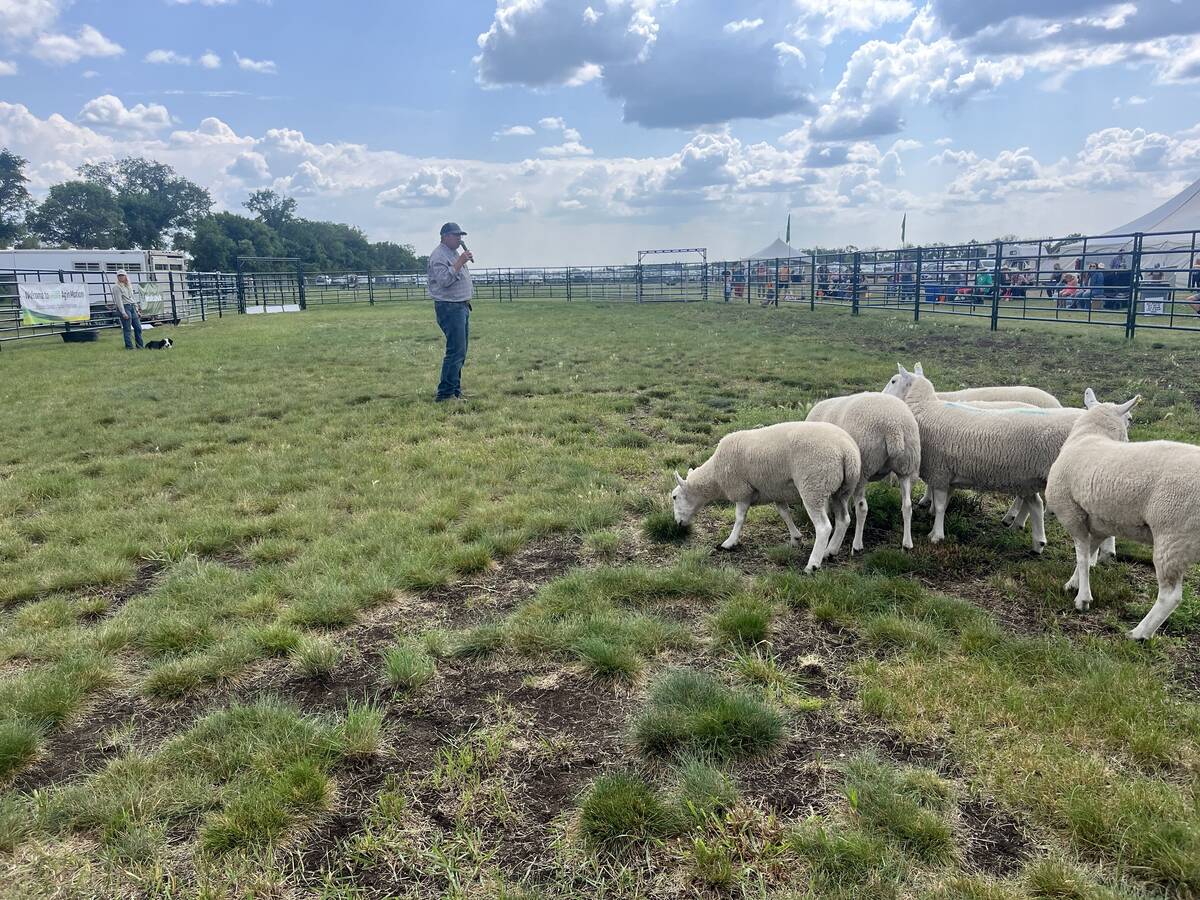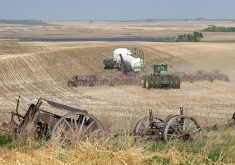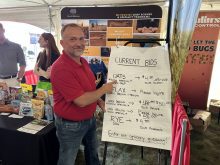DES MOINES, Iowa – The National Pork Producers Council wants the U.S. government to comply if the World Trade Organization rules against the country’s mandatory country-of-origin labelling rules.
However, a council spokesperson isn’t convinced COOL has had a significant impact on Canadian pork producers.
“I understand there’s a perception that they (Canadian hog farmers) have been economically harmed. I’m not sure that is the reality,” said Nick Giordano, the council’s vice-president and counsel for international affairs, during the World Pork Expo in Des Moines.
Read Also

Stock dogs show off herding skills at Ag in Motion
Stock dogs draw a crowd at Ag in Motion. Border collies and other herding breeds are well known for the work they do on the farm.
“Let me clarify and say, I don’t see that any harm that they might be suffering is any larger than what we (American pork producers) are suffering as result of the cost of compliance.”
The council opposes COOL because of the cost of compliance, but Giordano doesn’t buy the Canadian argument that the labelling rules have limited pig exports from Canada.
“We’re not seeing any less Canadian hogs than we would otherwise see,” he said.
“I know that pork producers in Canada might disagree, but I’m telling you what economists in the United States are saying and what we understand.”
He said any decline in Canadian exports is likely related to the rise in the Canadian dollar.
“Our understanding … is that the number one issue facing the Canadian livestock industry is the significant appreciation of the Canadian loonie the past five years.”
A University of Manitoba study has shown that Canadian hog exports to the U.S. have dropped since COOL was enacted Sept. 30, 2008.
“Due mainly to the impact of mandatory country-of-origin labelling … Canadian pig exports to the U.S. declined from 9.36 million head in 2008 to almost 6.38 million head in 2009 and 5.76 million head in 2010,” wrote Janet Honey.
Andrew Dickson, Manitoba Pork Council general manager, is convinced COOL has caused the decline in exports.
“It’s an impact annually of between $150 to $200 million dollars, in Manitoba alone,” he said.
He said Tyson Foods continues to accept pigs born in Canada that have been fed in the U. S, but that doesn’t mean Canadian hog farmers should learn to live with COOL.
He hopes a favourable WTO ruling on COOL will restore normal trade practices between Canada and the U.S.
“If we bring iron ore from Canada into the United States and make steel, it becomes U.S. steel. The concept is a substantial transformation…. That is how we do trade,” he said.
“The country-of-origin labelling is trying to throw us back to an earlier time. Somehow a 12 pound baby pig, when it gets fed out in the United States and becomes a 280 lb. pig … all of a sudden it’s still a product of Canada…. Any trade lawyer around the world will tell you that product, under normal custom law, would be called a product of the United States.”
An interim decision on the case, which was leaked to the media in late May, said the WTO had ruled in favour of Canada and Mexico.
Canada asked a WTO panel to look into the case in 2009, claiming the U.S. labelling law unfairly discriminates against Canadian livestock producers.
The NPPC hasn’t seen a copy of the interim decision, but Giordano said he expected it will be made public later this summer.
He also expects the U.S. to appeal the decision.
The WTO usually tries to respond swiftly to appeals, but Giordano said this case may take longer than expected.
“The (WTO) appellate body is backed up with legislation, among other things, Boeing and Airbus…. These are massive, complex litigations,” he said.
“Normally we’d be looking at a (COOL) decision at the end of year or early next year. Given all the work at the appellate level of the WTO, we may not see a final appellate body decision until this time next year.”

















